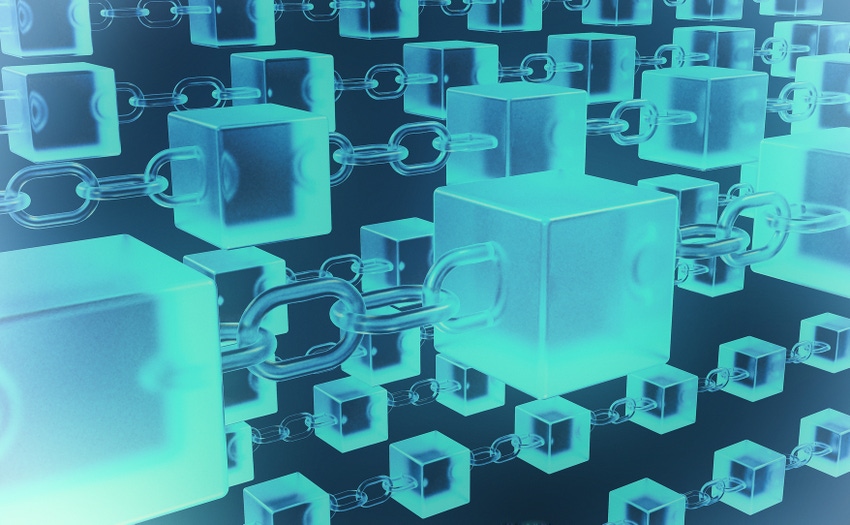Blockchain technology is set to be used by telcos in multiple applications across all areas of operations in coming years, according to an industry analyst who has delved into the potential use of the digital ledger technology (DLT) in the space.
October 25, 2018

Blockchain technology is set to be used by telcos in multiple applications across all areas of operations in coming years, according to an industry analyst who has delved into the potential use of the digital ledger technology (DLT) in the space.
James Crawshaw, a senior analyst at Heavy Reading, says communications service providers (CSPs) see significant potential for the use of the much-hyped technology, which is best known for underpinning cryptocurrencies such as Bitcoin.
“Today, CSPs use databases for thousands of applications. Blockchain might reach dozens of applications in the next few years. Examples include mobile number portability, SLA monitoring, or replacing CDRs for billing,” says the analyst, who describes blockchain, in essence, as a “decentralized, immutable electronic ledger; a write-once-read-many record of historical transactions, as opposed to a database that can be written over.”
Currently, CSPs are considering using blockchain in three key areas, according to Crawshaw:
Fraud management: for roaming and subscription identity fraud.
Identity management: storing identity transactions (network logins, purchases, etc.).
IoT connectivity: a blockchain could enable secure and error-free peer-to-peer connectivity for thousands of IoT devices with cost-efficient self-managed networks.
Crawshaw examined those use cases in depth in a recent report, Blockchain Opportunities for CSPs: Separating Hype From Reality.
And while there is a certain level of marketing enthusiasm around blockchain currently, that shouldn’t get in the way of real-world tests and deployments, notes the analyst.
“Like all complex new technologies there is a degree of hype and bandwagon-jumping with blockchain. Its main purpose is as an alternative to centralized systems for recording information (primarily databases). By distributing the control, you eliminate the risk of a hack of the central controller and the information being altered fraudulently. By using clever computer science you can replace the central controller (and the fees they normally charge) with software and get a cheaper, more reliable solution. But in most cases where we use a database today we will continue to use them in the future,” notes Crawshaw.
So which CSPs are taking the lead with the exploration of blockchain as a useful tool? Colt is one network operator that has been taking a close look at multiple ways to exploit blockchain’s potential for some time.
The operator, in collaboration with Zeetta Networks, is also set to deliver a proof-of-concept demonstration of a blockchain-based offering that enables network carriers to buy and sell network services in a secure, distributed marketplace. That PoC will be unveiled at the upcoming MEF2018 show in Los Angeles.
And Colt is one of the operators participating in a panel discussion – What Opportunities Are There For Blockchain In Telecoms & How Can These Aid Automation? – on November 8 in London as part of Light Reading’s ‘Software-Defined Operations & the Autonomous Network’ event. PCCW Global and Telefónica will also be involved in that discussion.
There are also a number of industry initiatives involving multiple CSPs: The key ones related to blockchain are:
The Carrier Blockchain Study Group, which counts Axiata, Etisalat, Far EasTone, KT, LG Uplus, PLDT, SoftBank, Sprint, Telin, Turkcell, Viettel and Zain among its participants
The Mobile Authentication Taskforce, which includes AT&T, Sprint, T-Mobile and Verizon
The International Telecoms Week Global Leaders’ Forum, in which BT, HGC Global Communications, Telefónica and Telstra are involved.
In time, blockchain might be joined in CSP back offices by other DLTs. “Blockchain is a particular type of DLT that uses cryptographically hashed blocks to record transactions in a time series or chain. If security is less of an issue you could use a simpler DLT. But then again, you might just use a regular database,” notes Crawshaw.
About the Author(s)
You May Also Like








.png?width=300&auto=webp&quality=80&disable=upscale)


_1.jpg?width=300&auto=webp&quality=80&disable=upscale)


.png?width=800&auto=webp&quality=80&disable=upscale)